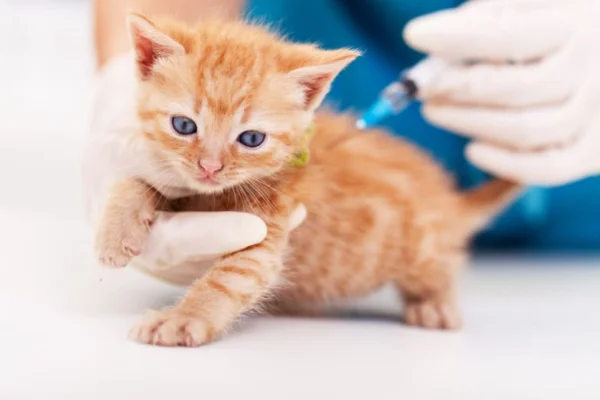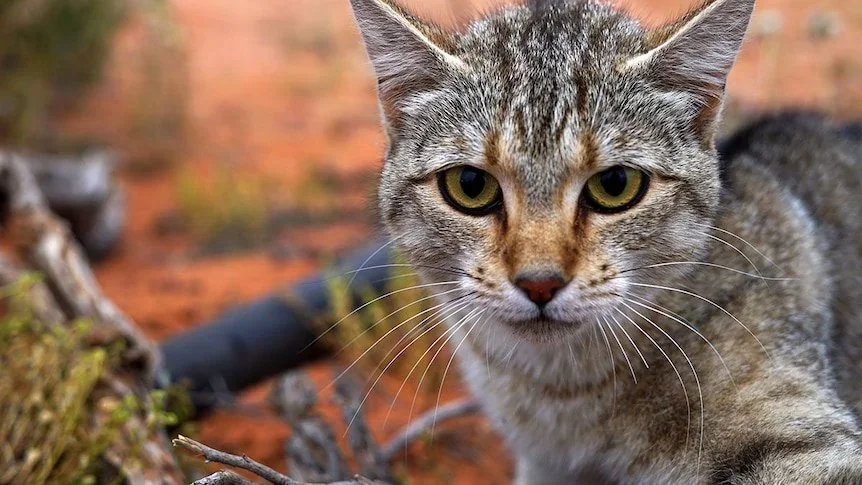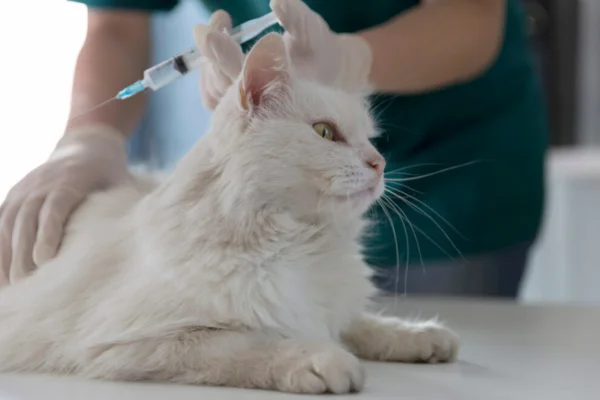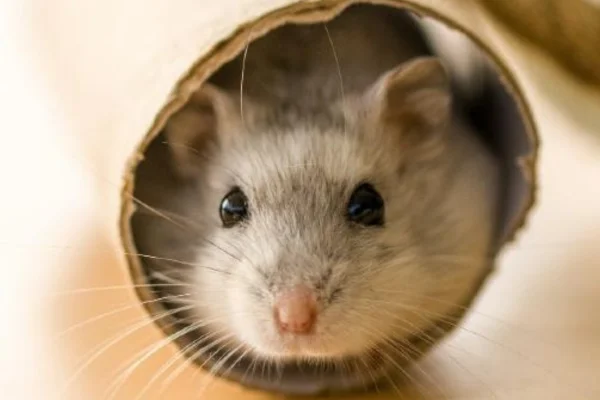Rabies vaccine for cats
The Importance of the Rabies Vaccine for Cats
Rabies vaccine for cats - Vaccination is one of the most effective ways of keeping our pets healthy and ensuring the safety of everyone around us. When we talk about rabies, a highly lethal viral disease, the rabies vaccine becomes essential not only for the protection of cats, but also for public health.
This article will explore everything you need to know about the rabies vaccine for cats, from the importance of immunization to the application process and possible side effects. Let's dive into this journey of knowledge to protect your cat and society.
Contents
What is rabies and why is it so dangerous?
Rabies is a viral disease caused by the Lyssavirus, which affects the central nervous system of mammals, including cats and humans. The virus is transmitted mainly through the saliva of infected animals, often through bites. Rabies is a disease that is almost always fatal, both for animals and humans, once symptoms begin to appear.
Symptoms in cats include sudden changes in behavior, aggression, excessive salivation, difficulty swallowing and, eventually, paralysis. Once the clinical signs appear, death usually occurs within a few days.
Since rabies can be transmitted to humans through bites or scratches from an infected animal, it is considered a zoonosis, i.e. a disease that can be transmitted from animals to people. For this reason, in many countries, rabies vaccination is mandatory by law. Protecting your cat with the rabies vaccine is not only an act of animal care, but also a public health responsibility.
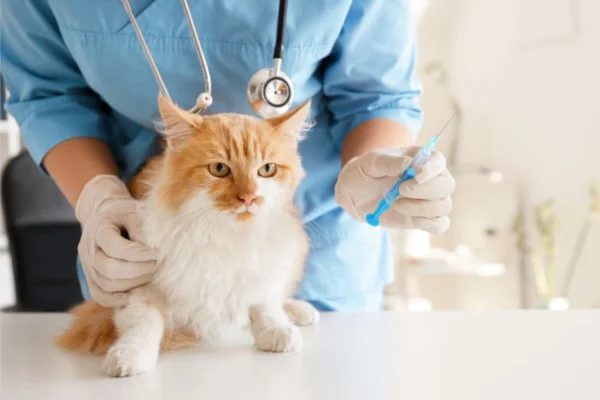
When to Give Your Cat the Rabies Vaccine?
The rabies vaccine should be given to your cat as soon as it reaches 12 weeks of age (around three months). This ensures that the kitten already has sufficient basic immunity to respond effectively to the vaccine. After the first dose, the rabies vaccine needs to be given annually to maintain protection.
Many owners ask themselves: "Why vaccinate a cat that never leaves the house?" The truth is that even domestic cats that have no contact with the outside environment can be at risk. This is because bats and other animals that may be infected with rabies can eventually enter the house, or the guardian can be exposed to the virus in other ways, such as contact with street animals. Prevention is always the best approach when it comes to rabies.
How does the rabies vaccine work?
The rabies vaccine for cats contains an inactivated version of the rabies virus. When administered, it stimulates the animal's immune system to produce antibodies against the virus, so that if the cat is exposed to rabies in the future, its body will be able to fight off the infection before the disease develops.
There are different types of rabies vaccines, but they all work on the same basic principle of stimulating the immune system. However, it is important that the vaccine is administered by a licensed veterinarian, who can ensure that the application is done correctly and that the animal is healthy enough to receive the vaccine.
Possible Side Effects of the Rabies Vaccine for Cats
As with any vaccine, the rabies vaccine can cause side effects in some cats. Most adverse effects are mild and temporary, disappearing within a few hours or days of vaccination. Common symptoms include lethargy, loss of appetite, low-grade fever and pain at the injection site.
In rare cases, some cats may show more serious allergic reactions, such as swelling of the face, intense itching, difficulty breathing or vomiting. If your cat shows any of these signs after vaccination, it is important to seek veterinary help immediately.
Despite the possibility of side effects, the protection offered by the rabies vaccine far outweighs the risks, especially considering the severity of rabies.
Rabies in Brazil: Statistics and the Importance of Prevention
In Brazil, rabies is still a concern in many areas, especially in rural regions where contact with wild animals is more common. Although the number of rabies cases in cats and dogs has fallen dramatically in recent decades thanks to mass vaccination programs, occasional outbreaks can still occur.
In addition, the presence of rabies in wild animals, such as bats, is an ongoing source of concern. In some Brazilian states, vaccination campaigns are held regularly to ensure that pets are protected, and participation in these campaigns is crucial to keeping rabies under control.
The Importance of Vaccinating Stray Cats
Another important point to consider is vaccinating homeless cats. Animal protection organizations often run campaigns to capture, sterilize and vaccinate homeless cats. These campaigns are essential for maintaining rabies control, especially in areas where the street cat population is high.
If you come across stray cats in your neighborhood, consider contributing to the cause, either by donating to these organizations or by adopting a cat. As well as offering a home to an animal in need, you'll also be helping to reduce the risk of spreading diseases such as rabies.
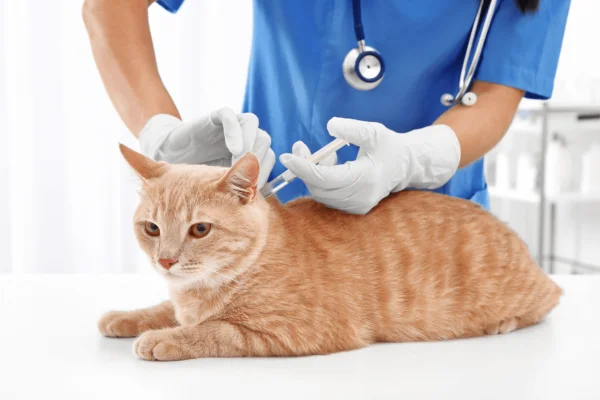
Myths and Truths about the Rabies Vaccine for Cats
There are many myths about the rabies vaccine, and it's important to clear them up so that cat owners can make informed decisions.
Myth 1: Cats don't need a rabies vaccine if they don't go outside. As already mentioned, even cats that live exclusively indoors can be at risk. Rabies can enter the domestic environment in unexpected ways, and vaccination is the only effective way to prevent the disease.
Myth 2: The rabies vaccine can make cats sick. Although the vaccine can cause some mild side effects, such as lethargy and pain at the injection site, it does not cause rabies. The vaccine contains an inactive form of the virus, which means it cannot cause the disease.
Myth 3: Once vaccinated, the cat is protected forever. Unfortunately, the immunity provided by the rabies vaccine diminishes over time. That's why it's essential to keep vaccinations up to date with annual doses, as recommended by your vet.
The Tutor's Role in Rabies Prevention
As a guardian, you play a crucial role in preventing rabies. As well as vaccinating your cat, it's important to keep an eye on its behavior and avoid contact with unfamiliar animals, especially in areas where rabies is still prevalent. If your cat is bitten or scratched by another animal, it is essential to go to the vet immediately, even if it is vaccinated.
Rabies is a terrible disease, but it is completely preventable. By following your cat's vaccination schedule and taking preventative measures, you can ensure that your feline friend is protected, as well as contributing to community safety.
Conclusion
The rabies vaccine for cats is an essential protective measure that goes beyond your pet's individual health. It also protects your family, neighborhood and even public health in general. Rabies is a serious and fatal disease, but with correct and continuous vaccination, we can keep our cats safe and help eradicate the disease from our communities.
Remember: see your vet regularly, follow vaccination guidelines and keep a close eye on your cat's health. With this care, you'll be guaranteeing your feline's longevity and well-being, as well as helping to prevent the spread of a dangerous and fatal disease.
Othank you for visiting us, check out our other work
https://vettopbr.com/cachorros/

